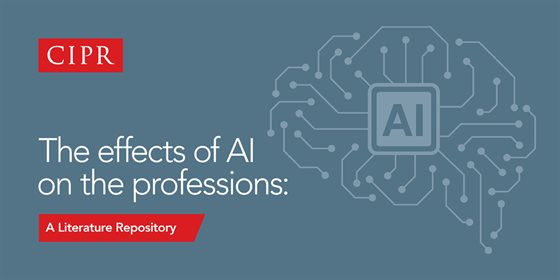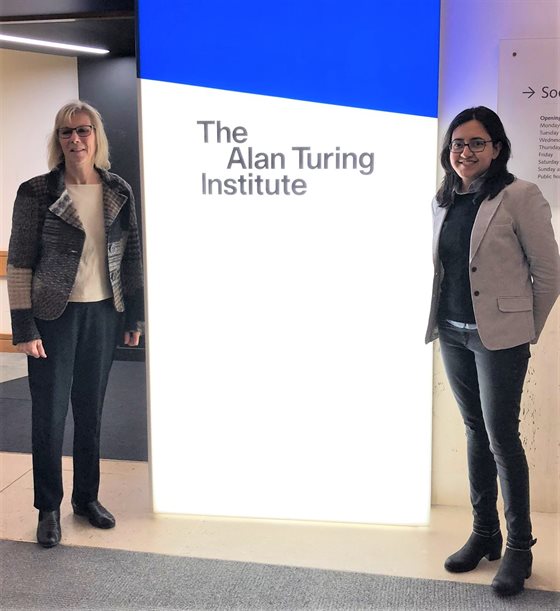A new report co-written by a De Montfort University Leicester (DMU) researcher has found that people working in public relations (PR) lag behind other professions in their preparation for the rise of artificial intelligence (AI).
‘The Effects of AI on the Professions: A Literature Repository’ report – published by the Chartered Institute of Public Relations (CIPR)’s Artificial Intelligence panel (AIinPR) – analyses more than 170 global publications on AI to determine its impact on different professions.

Dr Swati Virmani, Economics Lecturer at DMU, is a co-author of the report. She said: “The AI literature on the whole is huge and growing, this work is an attempt to draw key themes and recommendations around next steps for the professions.
“In particular, we draw significant conclusions around the potential challenges that the PR industry will face as a result of AI, including lack of discussion around ethical issues. A number of tasks, such as content creation and media monitoring, are now being automated, so there is a set of professional skills that are already being replaced by AI.
“We found that other professions, such as HR and management consultancy, are more progressive in planning around AI and are already putting measures in place to handle the transition.”

Dr Swati Virmani
The report examines academic papers, reports, think tank studies, articles from major organisations, and popular magazines and newspapers.
The CIPR launched the AIinPR panel in 2018 to explore the impact of AI on public relations and the wider business community. The panel has established an international reputation as a centre of excellence for promoting knowledge and understanding of AI.
Kerry Sheehan, chair of the CIPR AIinPR panel, said: “The public relations profession is significantly behind the curve and sleepwalking into AI. PR has a vital societal and organisational role to play in the debate on AI but it needs to better prepare itself with practitioners upskilling to work smarter, faster in their roles but also becoming equipped to advise on AI adoption and deployment within organisations and business and to its stakeholders and society.”
There are also concerns about disproportionate effect of AI on specific work groups, including women, ethnic minorities, unskilled workers, those doing routine work, and newcomers to the industry.
“We know that computers can process information quicker than humans and that AI is enabling us to programme technology to reliably perform tasks that have traditionally been carried out by people, hence posing the question – what is the future of a profession? – and raising concerns, especially for young professionals.” said Dr Virmani.
RELATED NEWS
Researchers explore how artificial intelligence could impact our lives by 2025
Researchers advise European Parliament on responsible AI development
Research shows humans are attacking artificial intelligence systems
In 2018 the CIPR published a paper titled ‘Humans Still Needed’, which suggested that 12% of a PR practitioner’s total skills could be complemented or replaced by AI, with a prediction that this could climb to 38% by 2023.
“AI is changing the nature of workforce, the future is a combination of being digital but also very human, as also recognised by the World Economic Forum’s call for global reskilling revolution. Hence a thorough review is needed if we want to better understand the effect that AI will have, in particular for the PR profession.” added Dr Virmani.
The AIinPR panel has pledged to conduct a more in-depth impact study of AI and the PR profession and review the education and training courses available to equip current and future professionals.
The ‘The Effects of AI on the Professions: A Literature Repository’ report is the result of an 18-month project led by Prof Anne Gregory (University of Huddersfield), working in collaboration with Dr Virmani and other participants.

Professor Gregory (left) and Dr Virmani at the launch of the report
The report was officially launched at the Alan Turing Institute – the UK’s national institute for data science and artificial intelligence – earlier this month. The event was attended by PR practitioners, AI researchers and representatives from the UK Government Office for AI and the Confederation of British Industry (CBI). To access the full report, click here.
Posted on Monday 27 January 2020